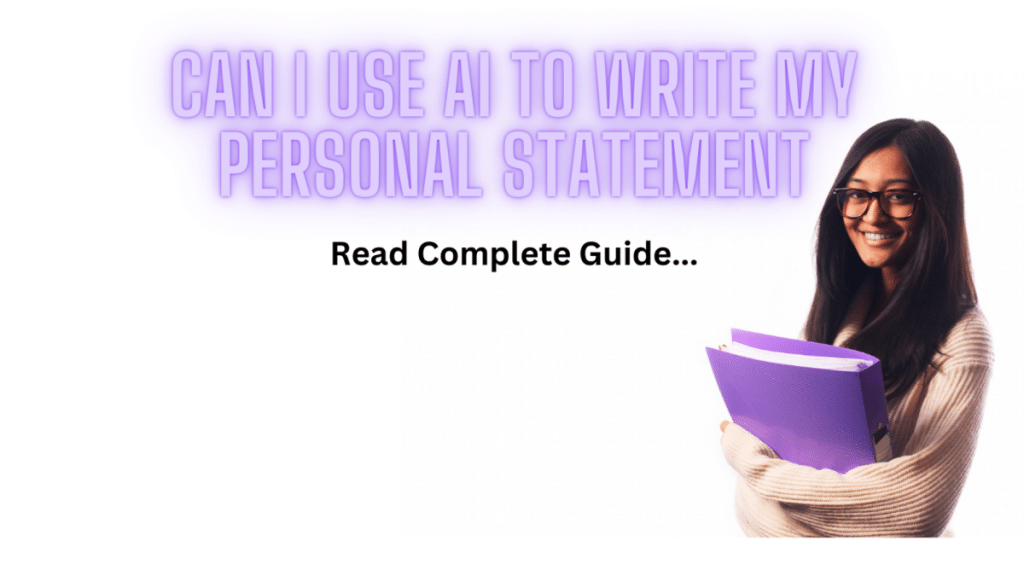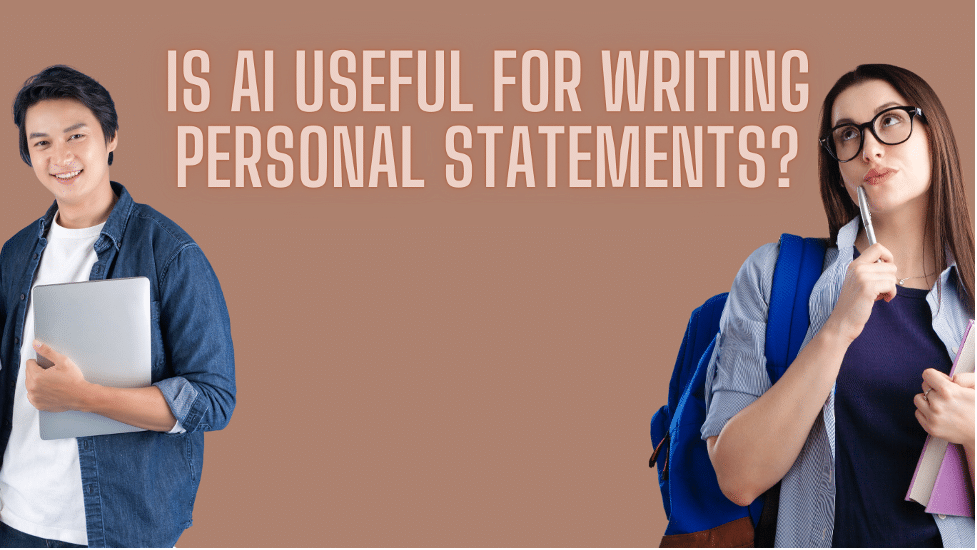Introduction:
Many students of University and A Level are concerned about crafting a piece of content or writing a personal statement using Chat Gpt or Ai. If yes then you’re not alone in this race. As AI technology is launched, it has the ability to fulfill various tasks in a short time period including academic writing like university or A-level assignments. But is it ensured to reflect your thoughts while keeping its authentic and unique voice? Let’s dive in and find our answers.
What is AI-generated writing?
AI-generated writing refers to content generated by artificial intelligence algorithms. These advanced systems can generate human-like text. By utilizing tools like Chatpt, they analyze a vast database of information and generate content on different topics. The launching period of AI tools is November 2022. They gained popularity among social media platforms and currently over billions of audiences are using them for different purposes either their web content or academic content. The AI tools discussion is also a focus-subject in Schools, Colleges( A-levels or O-levels), and Universities.
- Data Driven: AI’s ability to create content hinges on its training data. It learns from millions of examples to construct contextually relevant sentences.
- Human-like Style: With enough training, AI can mimic a specific writing style. This feature becomes crucial when you want your university personal statements to maintain your unique voice.
- Time Efficient: Creating drafts for A Level personal statements could be time-consuming. Here’s where an AI writer would excel by generating initial drafts quickly.
However, it is crucial to keep in mind that AI tools lack human-touch, personal experiences, or emotions.
Is AI useful for writing personal statements?
AI can craft various type of content including drafting personal statements. But here is some consideration to ponder: is using AI tools for personal statements considered Cheating? Generating content (copy, paste, submit) could be examined as cheating in Universities/Colleges and can affect your results. Here are some factors you should considered;
University and College Views
Universities and colleges value authenticity in applications. If your personal statement doesn’t feel human-written to examine it can highly affect the chances of being offered a position. Application officers often favor originality over technical perfection. They prefer a unique human voice that reflects the applicant’s personality, aspirations, and experiences. This also allows you to document any online courses you have made in your voice.
- Most universities look for the ‘human touch’ in applications.
- Authenticity typically outweighs perfected grammar or structure.
- The individual’s voice matters more than machine-like precision.
Is using AI Immoral?
Using AI isn’t immoral if you have the idea of using it in the right direction. If you let an AI write your entire statement without any input from you, it could be seen as dishonest. It is important to use them in the right manner while staying in competition.
- Morality involves considering whether the technology is being used honestly or deceptively.
- Letting an AI completely generate a statement can be considered dishonest.
- It’s acceptable to use AI tools for edits or suggestions while maintaining your authentic voice.
Is Ai Generated Writing Not Considered Good?
AI-generated is good but it lacks your personal emotions, feelings, thoughts and won’t be able to convey your set of experiences.
- Ai text often lacks emotional depth compared to human-written content.
- Systems struggle with replicating genuine emotions or experiences convincingly.
- Real-life experiences hold far greater weight than machine-generated narratives
How can I get help to write my personal statement?
You can get help from AI to write personal statements for your university assessment or A-levels. By providing prompts to the AI tool such as Chatgpt, they will inspire and clarify your own thoughts and ideas. Here are a few tips you can consider;
Creating a Basic Framework for Your Personal Statement
Starting with a basic framework eases the Personal statement writing process. Outline your thoughts, focusing on what you want to express about yourself because universities want to hear you, not AI. Include academic achievements from your A Level or equivalent studies. These might involve projects executed, leadership roles held, and any commendable grades obtained.
Brainstorming of Ideas
Brainstorming is an effective way of gathering ideas for your Personal statement. Think about memorable experiences that impacted your university course choice or shaped you as an individual. You can ask to list the skills that are relevant to your subject or you’re applying for. In this way, you’ll get an idea of your talents and how to convey them in your style.
When to avoid AI in creating personal statements?
In creating personal statements, understanding when and how not to rely on AI becomes crucial. This involves situations where you’d completely depend on AI, rephrase existing content, or generate bogus content.
Completely Depend on AI for Your Personal Statement
AI platforms provide assistance; they’re not substitutes for human effort. For example:
- Relying solely on an AI system may yield a well-structured statement but lacking originality and personality.
- Expressing your unique experiences and emotions is key in a personal statement—AI isn’t designed to replicate these yet.
- Universities value authenticity over finesse, so an overly polished personal statement might appear insincere.
Rephrase Existing Content
Rephrasing won’t make your International A-level achievements more compelling—it loses the uniqueness of your journey:
- It’s better to express original ideas than relying solely on paraphrasing tools.
- This could also potentially lead to plagiarism issues if the tool sources from copyrighted materials online.
- Authentic content resonates more with admission boards—they appreciate genuine insight into your experiences.
- Falsified information can tarnish your reputation when discovered by university authorities.
5. .It’s dishonest and defeats the purpose of writing a personal statement—to share authentic reflections about yourself and why you’d be a valuable addition at that institution.
How much percentage of AI is allowed in academic writing?
In the realm of academic writing, including personal statements for University or A Level admission, employing Artificial Intelligence (AI) must be done with caution. While there’s no fixed percentage defining how much AI is permissible, universities often have strict guidelines against using automated tools to write academic content.
Remember:
- Universities prioritize authenticity and originality over polished paper crafted by an AI.
- Plagiarism checkers used by educational institutions can detect text generated by AI.
- Incorrect use of AI may lead to disciplinary action.
Instead of relying heavily on AI, consider it as a tool for enhancing your writing after drafting your initial version. Make sure that the final piece of writing carries your authentic voice and experiences.
Note: It’s prudent to seek guidance from the university or education provider regarding their use of AI in academic submissions.


